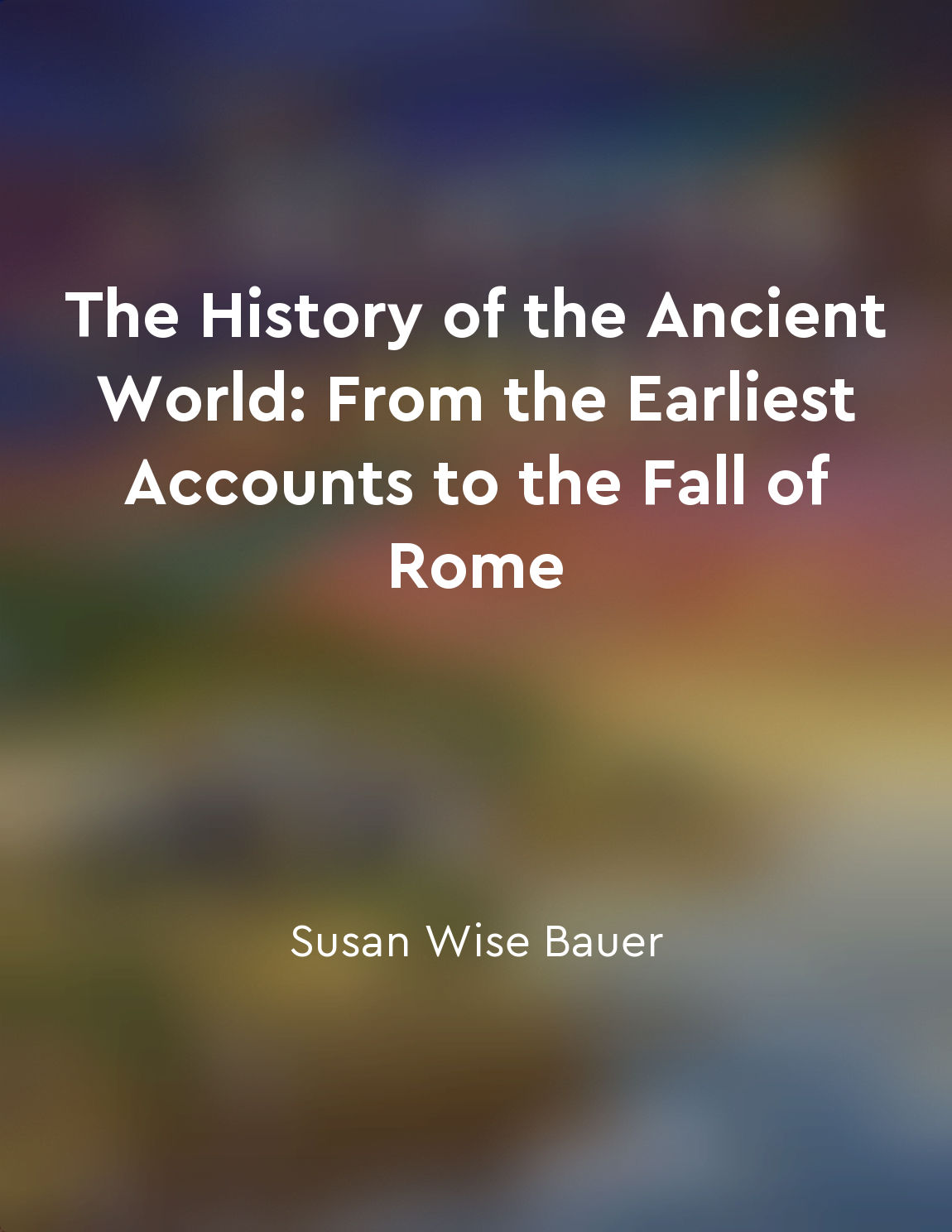Audio available in app
Analyze the challenges faced by postRoman European societies from "summary" of The History of the Ancient World: From the Earliest Accounts to the Fall of Rome by Susan Wise Bauer
After the fall of the Roman Empire in the fifth century, European societies faced a myriad of challenges as they tried to navigate a world without the stability and infrastructure that Rome had provided. One of the most immediate challenges was the breakdown of centralized authority, which had previously been a defining feature of Roman rule. With the collapse of the empire, power became fragmented and localized, leading to a lack of cohesion and coordination between regions. Additionally, the lack of a strong central government meant that there was no longer a reliable system for collecting taxes and maintaining public services. This led to a decline in infrastructure such as roads, bridges, and aqueducts, which had been crucial for the functioning of Roman society. As a result, trade and communication between regions became more difficult, contributing to a sense of isolation and stagnation in many areas. Another challenge faced by post-Roman European societies was the threat of invasion and conquest by outside forces. With the collapse of Roman military power, Europe became vulnerable to attacks from groups such as the Visigoths, Vandals, and Huns. These invasions led to widespread destruction and displacement, further destabilizing an already fragile social order. Furthermore, the decline of urban centers and the shift towards a more agrarian economy posed challenges for European societies as they tried to adapt to new ways of life. The disappearance of large cities meant that cultural and intellectual life suffered, as institutions such as schools, libraries, and theaters fell into disrepair or were abandoned altogether.- The challenges faced by post-Roman European societies were numerous and complex, encompassing issues such as political fragmentation, economic decline, invasion, and cultural stagnation. These challenges shaped the course of European history for centuries to come, as societies grappled with the legacy of the Roman Empire and sought to forge new identities in a rapidly changing world.
Similar Posts
Migration patterns and disease transmission
The movement of people across vast distances in the ancient world was a powerful force shaping the destiny of societies. As pop...
Pandemics as catalysts for societal change
The cataclysmic events of pandemics throughout history have often served as powerful catalysts for profound societal change. Th...

Trace the development of written language and recordkeeping
Written language and recordkeeping are essential components of the development of human civilization. The ability to communicat...

Analyze the impact of trade and commerce on cultural exchange
Trade and commerce played a pivotal role in shaping cultural exchange during ancient times. As goods were exchanged between dif...
Society is complex
Society is not a simple entity, existing in isolation; rather, it is a complex, intricate web of interrelated elements that con...
Octavian was proclaimed the first emperor of Rome
Octavian, the adopted son of Julius Caesar, found himself in a position of great power following the assassination of his prede...

Crusades fueled conflict between East and West
The Crusades were a series of religious wars that took place during the Middle Ages, with the primary goal of capturing Jerusal...
The decline of the West is unavoidable
The decline of the West is a process that is inherent to the very nature of civilizations. It is not a matter of if, but when, ...
Constantine's conversion to Christianity
Constantine, the Roman emperor, played a significant role in the history of Christianity. His conversion to the faith marked a ...
Trade networks and spread of pathogens
The interconnectedness of the Roman world was a double-edged sword. The same trade networks that brought prosperity and cultura...

